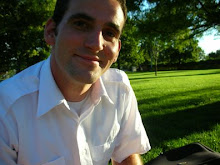Humor is our greatest ally in our ventures to find happiness as well as in our fights against the often bitter ironies, challenges, and disappointments so characteristic of the human experience. As others have said, often one of life's greatest challenges is to "drink the bitter cup" without actually becoming bitter.
When all is said and done, the greatest battles of the human race that have been fought have taken place, day in and day out, in the minds of each person. The watershed of attitudes, desires, actions, and the determiner for so much of what constitutes our human experience, thoughts truly have tremendous power and impact on not only the individual, but his community, and thus, the world.
So many -- too many -- of our thoughts fall into the "self-destructive" or "self-defeating" category. If thoughts are our greatest allies in the struggles of life, it does not good to poison them, or allow them to be poisoned. We would never allow someone to mangle our right hand, yet we so frequently allow ourselves to be handicapped by thoughts that, in effect, do the same thing to us mentally, emotionally, spiritually, and thus even have physical ramifications.
Another entry will have to cover in greater detail some examples of these species of thoughts and the "parent thoughts" who spawn and nurture them; for now, I wish to cover how to defeat such thoughts.
These thoughts can justly be called "mental maelstroms," as they quickly spiral downward to nothingness. Once caught in their pull, it can be incredibly difficult to free oneself from the rip of the raging, swirling current, but it must be done if one wishes to preserve his happiness and even sanity.
So what can be done? Here is where we come back to humor. These thoughts only have as much venom as we give them -- only have as much rope to bind us with as we are willing to concede. In letting our "feathers get ruffled" by these thoughts, we give them power. They only bother us because they bother us; if they do not bother us, they will not bother us. Allow me to explain such an obvious statement.
If I make some social blunder and others notice and comment, laugh, or mock, I may quickly find myself in downward-spiraling thoughts. I may review the situation over and over again in my head in my anxiety, reliving the moment time and again. To put it in another perspective, itwould be a lot like getting stabbed once, then re-stabbing oneself to remember exactly what it felt like; it is a vain, or fruitless, exercise. As I review the situation, others' reactions, and my own blunder, I may find myself angry with the people, myself, the situation, or even God. Why does the situation bother me? Because I could not laugh at it. When I learn to laugh at myself, even through possible tears of sadness, we, in effect, clip the barbs off of these assailing thoughts. They may do some momentary, minimal damage, but their rancor is gone.
By simply laughing at an uncomfortable situation, it has already lost its sting. This is often the only way to pull oneself out of the whirlpool of destructice thoughts. I must confront them and then laugh at them, understanding them in the context of my own experience, and of the human experience.
Let's not take life, and especially not ourselves, too seriously. Learn to laugh at yourself, even in the thoughts that come to your mind, and you will save yourself hours of wasted energy and grief.
Subscribe to:
Post Comments (Atom)


1 comment:
Good humor is one the greatest gifts one can give to both self and others--especially one's own children. Good humor reminds us to not take the foibles of life too seriously, but more importantly it keeps us from drowning its life's vagaries. Some say the best comics are the ones who do improvisation. The same can be said of those who have the best lives--continuous improvised humor. Good humor is its own reward--especially when the audience is one self. Kreig
Post a Comment